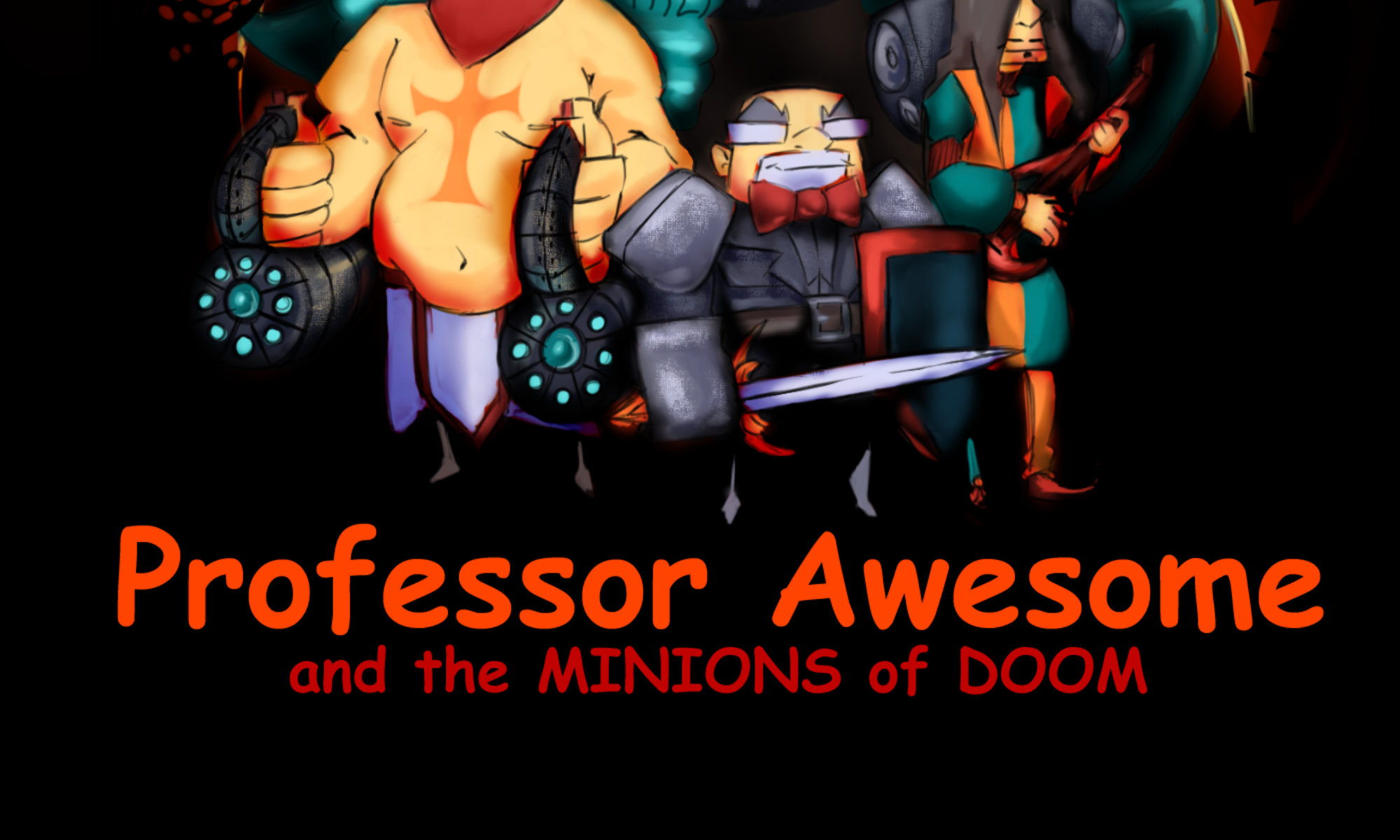Thug Notes: Fahrenheit 451
Professor Sweets introducing our common reading text at Troy University this year, Fahrenheit 451. Join our gang of scholarly hoods.
LotR Props for Auction
Saruman’s staff and Aragorn’s sword are up for auction this November, just in time for Christmas shoppers who have a few hundred thousand bucks burning up their pockets.
One little-known property of Saruman’s staff — it gives the power of breakdancing.
King Lear
Kid Beowulf and the Blood-Bound Oath (Scene 19)
I Am a Feminist Geek, and You Do, Indeed, Need Me
I’m having a lot of trouble taking the “We Don’t Need Feminism†tumblr seriously. For starters, the banner is a .gif from Veronica Mars, which is not only a blatantly feminist TV show, but also full of self-proclaimed feminist actresses, actors, writers, and producers. The scholarship about Veronica Mars even studies feminism within the show. So the choice to use Veronica Mars as a banner for an anti-feminist blog? That’s just funny.
The submission guidelines are hard to read, partially due to the unique editorial decision to use a bright red font on a dark blue background, and partially due to the creative use of sentence construction. Clearly, we’re not dealing with a user who is burdened with a knowledge of rhetoric.
The submissions themselves are in bright white boxes, which at least makes them easy to read, from a usability perspective. The contents of the white boxes, however, tend to range from semi-literate tweet fodder to, very occasionally, a sound bite that could prove thought-provoking, given more expansion. Of course, the medium of tumblr itself is limiting, but it appears that several of the submitters are limited by more than the medium. If the medium is indeed the message, then perhaps the real takeaway from this site is that anti-feminism is gaudy, hard to read, and largely untroubled by depth.
Feminism, as most of us know,  (and particularly those of us in the worlds of geek and/or academia), is hardly a monolithic edifice. Most theories of feminism now revolve around feminisms, acknowledging that there is more than one way to think, analyze, protest, act, believe, write, and unite. There is more than “the patriarchy†to address as well, because race, class, orientation, and education are just a few of the other ways agency (and access) can be restricted and regulated. Feminism, in other words, is complex. Anti-feminism? Evidently, not so much.
And it’s the simplicity, the reductiveness, and the sheer gaudiness of this anti-feminism tumblr that make me laugh because it’s a little like the stories my IT friends have told me about helping clients (“My printer doesn’t work!†“Have you tried loading paper?â€). And while I’m know that many feminists are angry about this tumblr, I know that many, many more are laughing. Because it’s hard to be a feminist without being, even in a small way, a geek. Someone who reads philosophy, books, and critical theory. Who is concerned with social justice. Who follows politics and reads newspapers. Who stays informed. Who is culturally literate. It’s hard to be a feminist, and not laugh when Veronica Mars is used as the poster child for anti-feminism.
Feminism, I would like to argue, is kind of inherently geeky. Which is an odd claim, since geekdom itself has traditionally been male (and white and middle class and educated and straight). But the quest for knowledge, social justice, voice, and freedom from oppression is a pretty geeky quest because geeks, like women, tend to be underdogs. Being a feminist requires knowledge, action, and power. And geekdom itself has produced some of the most compelling narratives of feminism and feminist heroines currently in pop culture, such as Buffy the Vampire Slayer, Wonder Woman, and yes, Veronica Mars. Science-fiction allowed for some of the first strong female protagonists, and writers such as Anne McCaffrey, Ursula K. LeGuin, and Octavia Butler took advantage of the medium. And comics are taking it even further, with a female Thor (yay!).
This isn’t to say that geekdom isn’t without sexism. But to say that feminism is, maybe, just a bit geeky, offers another way of looking at what, exactly, it is about feminism that is so abhorrent to so many. In that context, the anti-feminist tumblr makes a little more sense, because these women are claiming that they are not geeks, they are separate from something as geeky, as uncool, as intelligent as feminism. Because geekiness is still marginalized and smartness is vilified (literally: go watch an action film or a Disney movie), feminism isn’t “cool.†It doesn’t have cultural capital. The feminism vs. anti-feminism debate seems to be new iteration of geeks vs. jocks, but one with femininity (in its myriad of forms) evidently at stake.
This backlash against feminism is, then, in some respects a backlash against smart chicks that is very much in the vein of America’s current anti-intellectualism. And yet, the problem remains that geekiness is not necessarily feminist. The best example of how feminism is geeky, but geekery is not necessarily feminist, can probably be found in geek rock, and, far more generally, music overall. How so, you ask? Name 10 female geek rock musicians. How about 10 female rock musicians? Or 10 female musicians in any genre? NOT singers or vocalists. Musicians. Name me 10.
And that, right there, is when my laughter stops, because it’s so obvious, so glaring, so absent, that I’m astonished at anyone too blind to see it. Why do we need feminism?  The answer is clear: because there is still work to be done.






